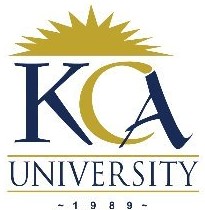 UNIVERSITY EXAMINATIONS: 2010/2011
UNIVERSITY EXAMINATIONS: 2010/2011
SECOND YEAR EXAMINATION FOR THE DEGREE OF BACHELOR OF
SCIENCE IN INFORMATION TECHNOLOGY
BIT 2107: OBJECT ORIENTED ANALYSIS AND DESIGN
DATE: AUGUST 2011 TIME: 2 HOURS
INSTRUCTIONS: Answer question ONE and any other TWO questions
Question One: 30 Marks (compulsory)
a) Describe Object-Oriented paradigm? (2 Marks)
b) Make a clear distinction between the traditional or the Structured Systems Analysis and Design and
Object-Oriented Analysis and Design? (2 Marks)
c) Re-use and maintainability are two advantages of object-orientation. Explain what these two
concepts mean. (4 Marks)
d) (i)Define the term “object” giving one example. (3 Marks)
(ii) How are objects identified from a formal requirement specification? (1 Marks)
e) (i) Giving an example define what a class is in object-orientation. (2 Marks)
(ii) By the use of clearly labeled diagrams show all the possible notations of a class in UML?
(3 Marks)
f) (i) What is a message? (2 Marks)
(ii) Explain two differences between a message and a procedure call (4 Marks)
g) When defining or discussing encapsulation the following two terms emerge:
INTERFACE and IMPLEMENTATION. What do they mean? (2 Marks)
h) Explain the concept of Responsibility Driven Design. (2 Marks)
i) Using clearly labeled UML diagrams, explain the “is-a” and “has-a” relationships (3 Marks)
Question Two: 20 Marks
a) By the use of a well-labeled UML diagram explain the concept of “inheritance” showing the “is-a”
relationships. (5 Marks)
b) Using UML notation, depict the inheritance relationships between the following classes: Shapes, 4-
sided shapes and Other shapes. NB; show the attributes and operations that can be associated
with each shape. (5 Marks)
c) Define the term overriding and by use of a valid example explain this concept. (2 Marks)
d) (i) define multiple inheritance. (2 Marks)
e) (ii) Using an example and a well labeled UML diagram show how multiple inheritance occurs.
(2 Marks)
f) Explain the generalization and specialization concepts as used Inheritance. (2 Marks)
g) Give two benefits and two costs of inheritance. (2 Marks)
Question Three: 20 Marks
a) (i) what is a business requirement? (2 Marks)
(ii) What is meant by requirement validation? (2 Marks)
b) State and explain three problems with requirements. (3 Marks)
c) Explain the questionnaire as a fact-finding method giving two advantages and two disadvantages.
(3 Marks)
d) Explain three ways in which programmers and software designers should prepare for change.
(3 Marks)
e) Write code in C++ to show how the concept of inheritance is implemented. (5 Marks)
Question Four: 20 Marks
a) Explain the term Object-Oriented Analysis. (2 Marks)
b) (i) What is a Use Case and a Use Case diagram? Show their UML notations notation. (6 Marks)
(ii) List four benefits of Use Cases. (4 Marks)
c) Read the following scenario.
The United States International University library registers members who need to use their library
services. Members borrow books through the circulation desk. If the book is available form the
shelves the circulation clerk lends the book to the member. If the book is not available the
circulation clerk places an order for the book to the supplier to supply the library with the book.
Required
i) What are the actors involved in the scenario? (3 Marks)
ii) What are the use cases involved in the library system? (3 Marks)
iii) Draw the use case diagram for the above scenario (2 Marks)
Question Five: 20 Marks
(a) Define the term Object-oriented Design and explain how it is related to Object-Oriented Analysis
(4 Marks)
(b) State and explain three types of objects involved in the design showing how they are depicted in
UML. (3 Marks)
(c) (i) Describe CRC card. (2 Marks)
(ii) State the advantages of using a CRC card? (2 Marks)
(iii) From the following scenario identify the objects involved and draw a CRC card for two
objects. (6 Marks)
A travel agency arranges holidays for customers. Bookings are made directly by customers.
When a customer makes an approach, the reservations clerk select appropriate flight details from
list that are updated weekly. The details are entered in to a Provisional booking file. The customer
must confirm this booking within three days by sending a deposit of 10% of the costs. On receipt
of the deposit, Reservations transfer the details from the Provisional Booking File to the Full
Bookings File. Four weeks before the flight is due, Accounts send an invoice to the customer for
the remaining costs. Accounts notify Customer services when full payment is received. And the
Customer Services then send tickets and joining instructions to the Customer.
